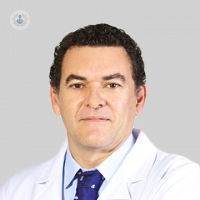Presbyopia occurs at 40
Written by:The doctor. Muñoz is a specialist in the ophthalmological clinic Oftalvist, a center of national renown. The doctor explains at what stage of a patient's life can develop presbyopia, common pathology between 40 and 60 years.
We know presbyopia as that loss of the ability to focus closely on the patient's affected eye, which makes it difficult to see nearby objects clearly.. This condition can begin to develop from 40 to 45 years of age, and gradually increases until the patient approaches 60, age at which presbyopia becomes stable.
Despite initially affecting the vision only up close, making it difficult to read or write. Later, the condition progresses and becomes more complicated, also affecting intermediate vision, making it difficult, for example, to operate a computer comfortably.
Treatment of prebiscia
Initially, a treatment with corrective glasses is usually enough, in case the prebiscia is neither very serious nor very advanced. However, there are cases in which it must be corrected by surgery. The use of this technique also provides solutions for those who do not want to wear glasses.
Surgery of the prebiscia
Prebiscia can be corrected by laser or with intraocular lenses. The implementation of one or another technique will depend on factors such as the age of the patient or the previous graduation of the vision thereof. Each case is different and as such you have to assess it individually and in detail before making any kind of decision. We could say, with complete certainty, that depending on the type of surgery used and depending on the specific case, said surgery can correct the prebiscia definitively.



